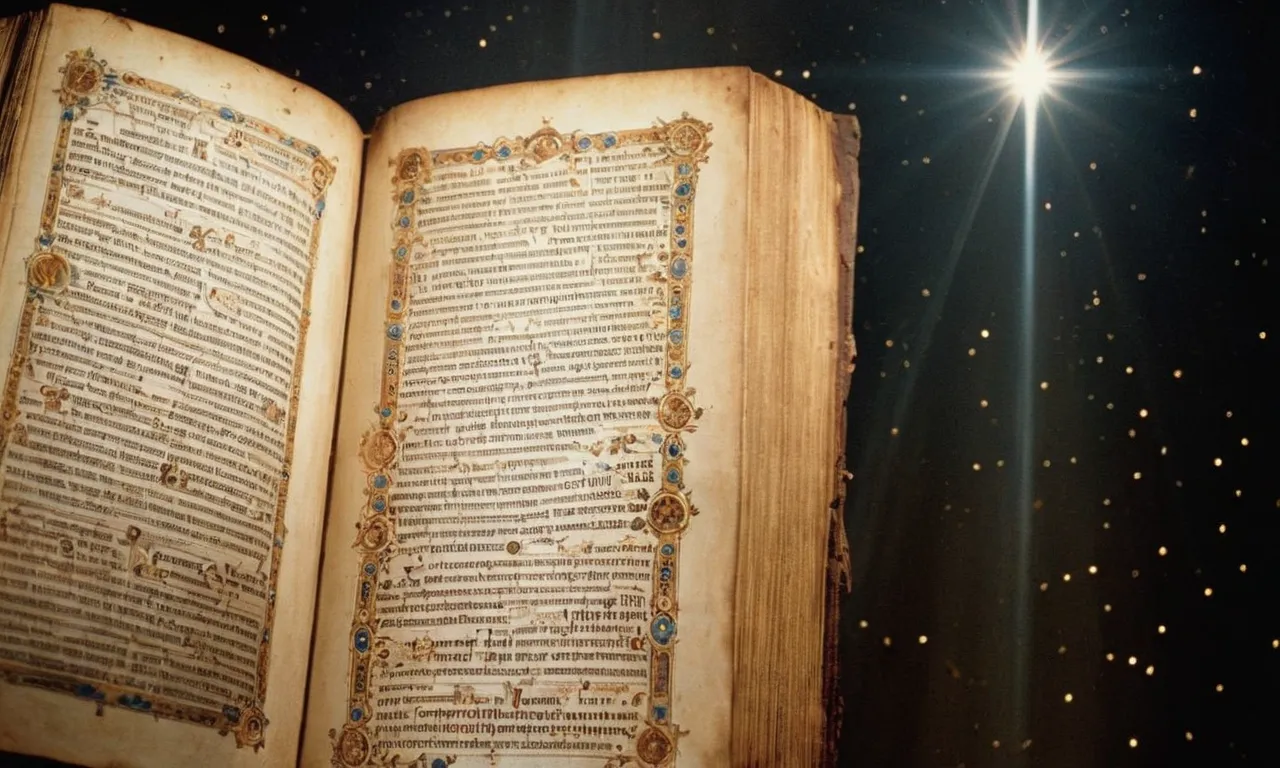Who Is Remiel In The Bible?
Angels play an important role throughout the Bible, carrying out God’s work and plans. One angel not frequently mentioned is Remiel. If you’re wondering who exactly Remiel is, here’s a quick answer:
In this comprehensive guide, we will explore Remiel’s origins, his appearances in ancient texts outside the biblical canon, his duties and responsibilities as an archangel, and the meaning behind his name and symbolism.
We’ll also analyze what his minimal inclusion in the Bible could signify about his role and purpose.
Introducing Archangel Remiel
Remiel’s Origins and History
Remiel is an archangel whose name means “God Raises Up.” He is referenced in ancient Jewish mystical texts like the Book of Enoch and the Kabbalah, where he is described as an angel of divine visions, mercy, and virtue.
Some scholars believe Remiel originated from the Hebrew Bible’s Book of Isaiah, where an angel helps raise up the oppressed (Isaiah 63:9).
In the Book of Enoch, Remiel is listed as one of the holy angels called Watchers who are sent to earth to watch over humanity. He is considered a guiding presence who helps people turn away from destructive behavior.
Some texts describe him stationed in the fourth heaven and set over those who rise from the dead.
Remiel’s Appearances in Ancient Texts
In addition to the Book of Enoch, Remiel appears in several ancient Jewish mystical works:
- The Zohar – a foundational text of the Kabbalah that describes Remiel as an archangel who oversees true visions and is associated with virtue.
- The Apocalypse of Zephaniah – an apocryphal work where Remiel guides the ascension of the prophet Zephaniah into heaven.
- The Life of Adam and Eve – describes Remiel as the angel sent by God to inform Adam of his impending death.
Remiel is sometimes identified as the angel who announces to Mary that she will give birth to the Messiah in the Gospel of Luke. He is also occasionally considered one of the angels present at Jesus’ empty tomb on Easter morning.
Duties and Responsibilities as an Archangel
As an archangel, Remiel has a few key duties and areas of responsibility that derive from his origins and appearances in ancient texts:
- Guiding those seeking enlightenment, wisdom, and higher consciousness.
- Inspiring people toward virtuous behavior, repentance, and divine mercy.
- Revealing divine visions, mystic insights, and spiritual truths.
- Watching over and guiding souls as they transition from life to the afterlife.
- Protecting and guiding individuals dealing with grief, depression, or despair.
- In some traditions, announcing prophecies, destinies, or new eras.
The Meaning and Significance of Remiel’s Name
The name Remiel has an intriguing meaning and significance in biblical texts and lore.
The name is composed of two Hebrew elements – “El” meaning “God” and “rem” meaning “mercy” or “compassion.” When combined, Remiel can be translated as “compassion of God” or “mercy of God.”
This meaning offers insight into Remiel’s divine role and purpose. As an angel whose name evokes God’s mercy and compassion, Remiel is associated with comforting, healing, and blessing those who seek help from God.
His name conveys the idea that he is a conduit of God’s grace, love, and care for humanity.
Etymological Significance
From an etymological perspective, the “El” component of Remiel’s name connects him to the ancient northwest Semitic word for “deity” or “god.”
This places Remiel in a class of angels like Gabriel and Michael who have names ending in “El” and are associated with the power, authority, and attributes of God.
The “rem” component relates to multiple Hebrew words conveying compassion and womb-love. This paints an image of Remiel enveloping people with nurturing divine care, much like a mother cradle’s her child. His name evokes gentle images rather than fierce strength.

In Religious Texts and Traditions
Remiel appears under various alternate names like Jeremiel and Ramiel in extra biblical texts like the Book of Enoch and 3 Baruch. In these texts, Remiel is described as an archangel overseeing true visions and divine revelations.
He is also associated with guiding the souls of the faithful into Heaven.
Within Jewish mysticism, Remiel is one of the holy angels governing one of the palaces in the Garden of Eden.
Remiel also plays a prominent role in ancient astronomical and astrological lore, being associated with the sixth heaven and the start sign Gemini.
Across these texts and traditions, the compassionate and merciful nature of Remiel’s name manifests through his divine guidance, protection, and revelations bestowed to humanity. He conveys the grace and care of God to those who seek it.
Remiel’s Exclusion from the Biblical Canon
The formation of the Biblical canon was a complex process that took place over several centuries. In the early years of Christianity, there were many texts that circulated and were considered authoritative by different groups.
However, over time, certain texts became widely accepted while others fell out of favor. Remiel is an example of an angelic figure referenced in texts that ultimately did not make it into the final Biblical canon.
The Formation of the Biblical Canon
The Biblical canon as we know it today really began to take shape in the 4th century AD. In 367 AD, Athanasius, the bishop of Alexandria, wrote a letter outlining the 27 books that would comprise the New Testament.
This list was later affirmed by Church councils, including the Council of Carthage in 397 AD. However, the canonization process took time and there was ongoing debate about certain books.
Texts that were excluded from the Bible fell into the category of New Testament apocrypha.
So while they had their adherents, apocryphal texts had questionable origins or theological content that made them suspect in the eyes of Church authorities.
Apocryphal Texts Referencing Remiel
Remiel is referenced in some apocryphal Jewish and Christian texts that would have circulated in the early centuries of the Common Era.
For example, the Book of Enoch, which dates to around the 2nd century BC, mentions Remiel as one of the leaders of the 200 Watchers who descend to Earth.
Remiel is also included in apocryphal lists of angels.
However, the Book of Enoch and other apocryphal works like the Apocalypse of Paul were ultimately excluded from the Biblical canon. As a result, canonical scripture makes no direct reference to the angel Remiel.
This means that his status is less authoritative than angels like Michael and Gabriel who do appear in the Protestant and Catholic Bibles.
What Remiel’s Exclusion Could Imply
The fact that Remiel is not included in canonical scripture has several implications:
- It suggests proto-orthodox Christians did not accept apocryphal stories about Remiel descending to Earth as theologically accurate or authoritative.
- Remiel’s absence may have been due to questions about the authenticity and origins of texts referencing him.
- It indicates Remiel was not as important in early Christian angelology as other angels like Michael, Raphael, and Gabriel who have clearly defined roles in Biblical stories.
- Remiel’s lack of mention in the Hebrew Bible also suggests he did not originate from Jewish tradition, but rather uniquely Christian apocryphal texts.
Conclusion
In the end, Remiel remains a mysterious biblical figure. While excluded from the canonical Bible, his inclusion in apocryphal texts points to his likely importance. As an archangel governing revelations and visions, Remiel seems to operate out of human sight, carrying divine messages back and forth.
Ultimately, Remiel’s obscurity leaves many open questions about his role and purpose. But one thing’s for certain – as an archangel, Remiel holds power and acts in service to God in ways beyond human understanding.







